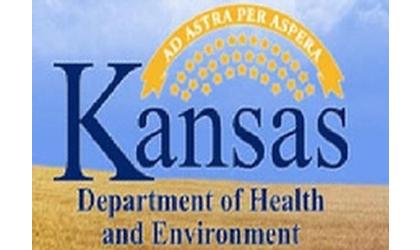Editors note--the city of Hiawatha's sewer plant was part of study to determine if COVID-19 can be detected in wastewater. The Kansas Department of Health and Environment Thursday issued the following release on the study.
(MSC News)--The Kansas Department of Health and Environment recently teamed up with the University of Kansas School of Engineering to determine if genetic remnants of COVID-19 can be detected in wastewater.
The concept originally tested in Massachusetts and the Netherlands, and now throughout the United States, is that people infected with the virus shed it through their urine and feces. The genetic material can be extracted from wastewater and matched against genetic markers keyed to COVID-19. The virus itself does not survive in wastewater, and therefore wastewater is not a significant means of disease transmission.
Detecting the genetic material in wastewater is indicative of COVID-19 being present and may give local health officials knowledge of how widespread it is in their community, allowing them to take proactive measures to mitigate its spread. While drinking water is not part of this ongoing study, it’s important to note disinfection by all Kansas public water suppliers inactivates the virus and drinking water remains safe for consumption.
The Kansas project is still in its preliminary stages. KU collected samples from 12 wastewater plants in Kansas in late April--including Hiawatha. Some indication of the genetic material was found in the wastewater in 10 of those plants--including Hiawatha. Results are too variable and uncertain to make actual estimates of the extent of infection in those communities. The results were communicated to officials in cities that participated in the study.
“The initial results do show genetic indications from COVID-19 in wastewater; however, at best, we are at the presence/absence stage of evaluation process,” Tom Stiles, KDHE’s Bureau of Water director, said. “There is much more we need to refine in the methodology to assure quality control and that will start with further testing of samples. We don’t know how quantitative this approach can be, but we are hoping it gives us a means to corroborate our COVID testing of individuals, particularly in counties where positive cases have been low. Additionally, we may employ it as early warning surveillance should the virus come back in the fall or winter to give us a chance to get ahead of it.”
Samples were taken from a large city and a small town, each in five northeast Kansas counties with multiple wastewater facilities and sampled in Lawrence and Topeka. KDHE and KU are still evaluating the results and formulating plans for next steps in using the detection techniques.
© Many Signals Communcations
MOST VIEWED STORIES
Atchison woman pleads to charges in fatal crash
3 arrested in Hiawatha drug bust
Updated: Officer shooter search leads to arrest
Former Kickapoo Tribal Chair pleads to child porn-related charge
Atchison man earns prison from injurious outburst
Baniewicz on leave at Bishop Miege; investigation launched
Public health advisory issued for two local lakes
Falls City man sentenced to prison on multiple charges
State Audit discovers alleged financial misconduct
Saturday night construction zone crash injures one
Falls City Council member rescinds resignation
Atchison's Lust found safe following disappearance
Death of puppy leads to Atchison arrest
Candidate list finalized in Brown Co
Young sex offenders earn sentences in Atchison Co
Arrest following search warrant in Mayetta
Woman injured after striking object on Nemaha Co highway
3 local communities awarded small-town grants
LATEST STORIES
Public health advisory issued for two local lakes
Baniewicz on leave at Bishop Miege; investigation launched
Falls City Council member rescinds resignation
Atchison proclamation of Juneteenth made Monday
Death of puppy leads to Atchison arrest
Charges filed in fatal Holt County MO crash
Wellness recovery program coming to SE Nebraska
Auburn native to seek NU Board of Regents seat


 Printer Friendly
Printer Friendly
 Email to a Friend
Email to a Friend






